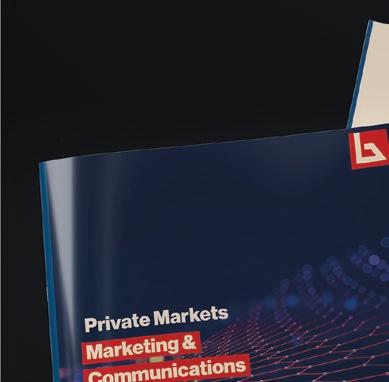




In this private equity edition, Bite Stream’s Henry Reynolds discusses how technology enhances investor relationships. Capricorn Capital Partners' Ricardo Delgado emphasises the importance of cash returns in evaluating PE performance. H Squared’s Max Heppleston explores talent and the institutionalisation of small to mid-sized funds. Peregrine Communications’ Josh Cole and Bill McIntosh examine the growing retailisation trend. Lastly, in Letter from America, Prosek Partners' Mark Kollar delves into the DeepSeek story and role of private market investors.


January saw shifting geopolitics, with conflicts and strategic rivalries reshaping alliances and driving volatility in equity markets (click here to see market review). Amid this turbulence, hedge funds had a strong start to the year, with the HFRI Fund Weighted Composite Index rising 1.4% and the Asset Weighted Index up 1.7%. Multi-strategy managers led the way, capitalizing on diverse market opportunities.
The HFRI Equity Hedge (Total) Index climbed 2.1%, driven by strong gains in Multi-Strategy, which surged 3.6%. Fundamental Value also performed well, up 2.8%, while the Technology Index rose 2.2%. Healthcare, however, lagged behind, eking out just 0.2%.
Event-Driven strategies delivered mixed results, with the Index up 0.9%. Activists rebounded strongly, gaining 2.4%, while Credit Arbitrage also had a solid month, rising 2.0%.
Macro managers navigated various trend themes, posting a 1.0% increase. Multi-Strategy emerged as the strongest performer, up 2.5%, followed by Discretionary managers at 1.6%. Systematic strategies, however, struggled to gain momentum, rising only 0.6%.
In Relative Value, the Index was up 0.8%, with all underlying strategies in positive territory except Volatility, which declined 0.5%. The best-performing sub-strategy was Fixed Income Convertible Arbitrage, up 1.3%, followed by MultiStrategy, up 1.2%.
Regionally, Indian equities were the biggest drag, with the Index plunging 8.7%, primarily driven by substantial foreign investor outflows. Asia exJapan also struggled, down 1.9%, while China slipped 0.5%. On the upside, Latam was the standout, surging 4.8%, followed by MENA and North America, both up 1.7%.

Source: Preqin Source:
Paris-based investment firm Ardian achieved significant milestones with the closing of two major funds, underscoring its leading position in the secondaries market and in mid-cap private equity.
Ardian’s latest secondaries fund, ASF IX, closed at $30 billion, a sharp rise from its $19 billion predecessor in 2020. This is the largest fund to date, reflecting strong demand for liquidity solutions as limited partners seek alternative exits amid a buyout slowdown. Half of the fund's capital is already deployed across 17 transactions.
Meanwhile, Ardian closed Ardian Expansion Fund VI (AEF VI) at €3.2 billion, up 60% from its €2 billion predecessor in 2020. Backed by pension funds, insurers, and family offices across Europe, North America, and Asia - including 120 new investors - AEF VI targets mid-sized tech, healthcare, and industrial companies for international growth.
Ardian also launched its first private equity continuation fund to support Syclef, a European leader in refrigeration and air conditioning systems.
Insight Partners raised $12.5 billion for its 13th flagship fund, Fund XIII, short of its $20 billion target but still an impressive raise in a tough venture capital environment. The total includes a dedicated buyout co-invest fund and Opportunities Fund II, aimed at investing in highgrowth software companies globally. Fund XIII will deploy between $5 million and $500 million+ in companies at various growth stages, while Opportunities Fund II offers flexible structured equity solutions to support growth and strengthen balance sheets. This close brings Insight's assets under management (AUM) to over $90 billion.
Ares Management closed its sixth European direct lending fund, Ares Capital Europe VI (ACE VI), with €17.1 billion in commitments, surpassing its €15 billion target and hitting its hard cap. This raise makes ACE VI the largest institutional direct lending fund globally by LP equity commitments, marking a 53% increase over its predecessor, ACE V, which closed in 2021 with €11.1 billion. Including related vehicles and leverage, Ares' European Direct Lending strategy now manages around €30 billion in deployable capital.

(cont.)

Allianz Global Investors (AllianzGI) closed its inaugural private debt secondaries fund, Allianz Private Debt Secondaries Fund (APDS), at €1.5 billion, surpassing its €500 million target.
Launched in September 2022, APDS provides institutional clients access to secondary private debt opportunities across the US, Europe, and Asia, focusing on senior direct lending and opportunistic positions.
Strong investor demand reflects growing interest in private debt secondaries, with AllianzGI planning a successor strategy for mid-2025 to capitalise on further market opportunities.
Former Blackstone executive Mustafa Siddiqui launched a new private equity secondaries firm, SQ Capital. Capitalising on the growing demand for secondary investments, the fund is focusing acquiring stakes in middlemarket private equity funds primarily under $5 billion, targeting the US and Europe.
Thoma Bravo closed its third private credit fund, Credit Fund III, with $3.6 billion in commitments, including anticipated leverage, which is more than double its initial $1.75 billion target.
The fund focuses on direct lending to sponsor-backed companies, emphasising senior-secured debt over early-stage investments.
Nearly $1 billion has already been deployed across 20 transactions.
Thoma Bravo, which managed over $166 billion in assets as of September, has adopted a more conservative leverage approach for this fund compared to its more typical one-to-one structure.
Teaming up with its Lexington Partners business, Franklin Templeton launched Franklin Lexington Private Markets Fund (FLEX), an open-end fund focused on secondary private equity investments.
FLEX launches with $904.5 million,
which provides access to a diversified portfolio of secondary transactions and co-investments in new private equity deals.
Franklin Templeton acquired global secondary private equity firm Lexington Partners in 2022.


HOUSE VIEW: President Trump 2.0 is clearly reshaping ESG in the US amid the fast shifting regulatory landscape but we think it is unlikely to stop the sector's momentum.
Trump plans to dismantle key climate policies, including the Inflation Reduction Act, a major driver of clean energy investment. Such shifts has already prompted certain financial institutions to retreat from net-zero commitments, reflecting broader corporate caution in response to potential policy rollbacks. While federal support for ESG may weaken, the sector itself remains deeply entrenched in global markets. Despite political headwinds, ESG investing continues to expand. According to Bloomberg Intelligence, the market, valued at over $30 trillion in 2022, is projected to surpass $40 trillion by 2030.
Institutional investors remain a key driver, sustaining strong demand for green bonds and sustainability-linked financial products, reinforcing ESG's long-term momentum in global markets.
With Trump 2.0, the responsibility for advancing ESG initiatives is shifting more directly to investors and corporations. While federal regulatory support may decline, market demand, climate risks, and shareholder expectations ensure that sustainability remains central to corporate strategy.
Companies are likely to continue integrating ESG principles into governance, supply chains and financial models, adapting to a regulatory landscape that may offer fewer incentives but still carries market-driven imperatives.
Ultimately, ESG investing is here to stay, though its trajectory may evolve. Companies and investors who view sustainability as a long-term value driver will continue pushing forward, even if government oversight loosens.
Private equity fundraising continued its downward spiral in 2024, marking the third consecutive year of decline.
S&P Global Market Intelligence reported that global private equity funds raised approximately $680 billion, down 30% from $966 billion in 2023. This figure is the lowest level since 2015 when $502 billion was raised. The decline is attributed to a weak exit environment limiting liquidity and a sharp drop in fund closures. In
2024, only 1,783 private equity funds closed, representing a 40% decrease from the previous year. This highlights ongoing challenges in capital raising and deal-making across the industry. Despite the downturn, EQT secured the largest fund of the year, closing EQT X at $22.7 billion. The Government Pension Investment Fund of Japan emerged as the biggest limited partner (LP), committing over $500 million.

The private equity secondary market surged past $150 billion in transaction volumes in 2024, marking a sharp increase from 2023, according to numbers from Jefferies Financial Group and Lazard. This growth was fueled by LPs seeking liquidity
amid a slowdown in M&A and IPOs, driving a rise in LP-led transactions. At the same time, GPs increasingly used continuation funds to extend holding periods for highperforming assets.
According to With Intelligence, hedge fund assets are on track to exceed $5.5 trillion by 2030. This expansion, WI believes, opens up significant opportunities for service providers as funds look to scale, introduce new strategies, and adapt to evolving regulations.
Key areas of demand include fund growth, driving the need for technology, legal and operational support, and mega launches, creating openings for prime brokers, fund administrators, consultants, and other essential service providers.

Explore our insights on marketing in the ever-evolving world of private markets. The 2025 handbook delivers actionable strategies and best practices to empower managers, marketers, investor relations and communications professionals.







Build and communicate a compelling private markets brand, from di erentiation and unified identity to crafting e ective presentations and engaging with the media . Discover how to balance routine with creativity, leverage AI in investor relations, and maximise LinkedIn as a key platform. With practical tips on white papers, press releases, social media strategies, and setting the right tone, this guide provides the tools to thrive in a competitive landscape






It was an interesting move by the Abu Dhabi Investment Authority (ADIA) to partner with Innocap Investment Management to provide managed account platform services for segments of its hedge fund and equity investments.
As part of the deal, an ADIA subsidiary will gradually acquire up to a 10% stake in Innocap, with Mohammed Sghayer Khalaf Al Qubaisi joining its
Global funding for AI start-ups surged to $131.5 billion in 2024, a 52% year-over-year increase, while funding for non-AI start-ups fell 10% to $237 billion, according to PitchBook.
Growth was driven by high-profile rounds, including OpenAI's $6.6 billion raise at a $157 billion valuation and Databricks' $10 billion Series J investment. The uptick reflects AI's transformative potential, with new generative models, infrastructure, and industry applications.
Corporate investors like Microsoft, Amazon and Google played key roles, with Nvidia investing $1 billion across 50 start-ups, according to Reuters. AI emerged as the defining venture capital theme of 2024, underscoring its strategic importance, a trend likely to continue in 2025 despite new disruptor entrants like DeepSeek.
board. From ADIA's perspective, this reflects a broader institutional shift towards greater transparency, capital efficiency and reduced reliance on other intermediaries.
With $80 billion in assets across 340 funds, Innocap views the Middle East as a key growth market and will open an Abu Dhabi office this year to expand the regional presence/ bolster their relationship.

Apollo Global Management’s acquisition of Argo Infrastructure Partners is a strategic move that not only expands its assets but also strengthens its distressed asset investing capabilities.
Argo’s expertise in distressed claims complements Apollo’s broader strategies, positioning the firm to capitalise on opportunities amid economic uncertainty.
The deal highlights Apollo’s readiness to scale through acquisitions, enabling it to quickly leverage Argo’s team, processes, and market relationships to enhance its offerings without the time and complexity of building in-house.
Apollo’s growth strategy remains a balanced mix of organic expansion and strategic acquisitions as it aims to double its assets under management to $1.5 trillion by 2029.

HOUSE VIEW: Saba Capital’s recent, well publicised, struggles in the UK’s £269 billion investment trust sector highlight that activist campaigns don’t always succeed.
The firm has aggressively targeted seven underperforming investment trusts, citing persistent discounts to net asset value and governance concerns. However, shareholders decisively pushed back.
Saba’s proposals were resoundingly defeated at the Baillie Gifford US
Growth Trust and Keystone Positive Change Investment Trust, with 65.6% and 60.5% of shareholders voting against them. The Herald Investment Trust dealt another blow earlier, with over 64% opposing Saba’s plans.
While Saba raised valid concerns - many trusts trade at significant discounts, raising questions about board effectiveness—the battle became one of perception rather than performance. The firm is seen as a US hedge fund opportunistically
Bloomberg ran the story that Fortress Investment Group ($49bn AUM) and Lighthouse Investment Partners, LLC ($16bn AUM) are merging their global multistrategy hedge funds.
The newly formed fund will be managed by Lighthouse CEO Sean McGould and Jeffrey Runnfeldt, who runs Fortress's Multimanager Group. The partnership is a significant move for both firms, particularly in a world where there are so many sensitivities around proprietary investment thinking.
Such collaborations and partnerships are becoming increasingly common as funds and, usually, distributors consolidate to strengthen their investment offerings. In this case, a single fund offers far better economics, operational efficiencies, and enhanced investor alignment. We wonder which track record they will use...
Securitize partnered with Apollo to launch the Apollo Diversified Credit Securitize Fund (ACRED), providing tokenized access to Apollo’s Diversified Credit Fund.
Available on Aptos, Avalanche, Ethereum, Polygon and Solana, ACRED enhances investment accessibility and liquidity using blockchain technology and Wormhole interoperability. Investors can participate exclusively through Securitize Markets, which serves as the fund’s broker-dealer and administrator. Such initiatives mark a significant step forward in growing access to private credit through tokenisation.
challenging the long-term strategies of seven “very British” trusts, a narrative it has failed to shift.
To have a chance of changing the scoreline, Saba needed to more clearly articulate how its proposals would unlock value and reassure shareholders of its long-term commitment - something it failed to achieve. It also needed to be more proactive on the PR front, which has been common criticism levelled by various journalists covering this story.

Goldman Sachs' launch of the Capital Solutions Group highlights a broader trend among major banks pivoting toward private credit as a lucrative growth area.
With the private credit market nearing $2 trillion, banks see an opportunity to capture deal flow traditionally dominated by nonbank lenders. This move follows
similar efforts by competitors to expand in private credit, as companies seek alternative financing amid evolving market conditions. By leveraging its expertise to meet rising demand, Goldman strengthens its competitive position and underscores private credit's growing role in corporate finance.























































































































































































































































































































































































































As the world seemed to be getting used to FOMOtype investing of artificial intelligence models and the data centers that power them, along comes DeepSeek-RI -- from a start-up out of China that developed a low-cost, efficient AI application, sending investors and technologists into DeepShock.
No surprise that DeepSeek dominated headlines, with dire predictions of the fate of US models, competition and pricing. But for private markets, the bigger question seemed to focus on whether projections for the vast amount of energy needed to power AI was bloated or still valid as this slimmed-down version was now available on the market for free.

So with DeepSix, is a pause or pivot now in order?
Lots of debate at the end of the month but the majority opinion is a pretty clear “no.” Despite the pomp and confusion around DeepSeek early days, it appears investors may now have more options to consider even while questions remain on how the real costs to develop the Chinese application, whether it is really “better” and most important, what’s next.
...I count some 53 allocations or fund formations in the datacenter ecosystem from private markets in the last seven months, with at least a dozen in January alone....
In recent years, privatemarket investors have been buying or building data centers, the actual warehouses where tech companies run AI systems. And at a fast and impressive pace.
By my back-of-the-napkin calculations (how old school!), I count some 53 allocations or fund formations in the data-center ecosystem from private markets in the last seven months, with at least a dozen in January alone including Blackstone’s recent acquisition of Potomac Energy Center in Loudoun County, Virginia; Apollo Global Management’s agreement to acquire Argo Infrastructure Partners; and South Korean investment firm DeepGreenX agreement with Sente Ventures to create a new five-year $25 billion investment program.
Add to the mix the Trump administration’s announcement for Stargate, a new company with a goal of investing as much as $500 billion in AI infrastructure, with the financial help of OpenAI, Softbank and Oracle and you got a funding bonanza.
Now enter the Jevon’s paradox, a theory that has been referenced a bit in the media (Business Insider, others) in relation to DeepSeek. Simply put, as tech gets cheaper (DeepSeek) and more efficient, then demand increases at a faster clip. That means as competition heats up for less expensive/more efficient models, the more usage increases and energy demand stays high. So it seems full (ish) steam ahead.

As Jonathan Gray, Blackstone’s president and chief operating office, said during a fourthquarter earnings call with investors in January, “We still think there’s a vital need for physical infrastructure, data centers and power. The form of that use may change.”
So much has been called into question as a result of the upstart but one thing remains clear: the actual technology -- no matter the sources -- has staying power beyond the pomp and paradox.
Mark Kollar Partner, Prosek Partners



When we think about decarbonization or energy transition assets, it almost doesn't matter where you're based. In the US, in the UK, in Europe, if you are thinking about the commercial sustainability of your asset - and that you're not planning to sell the asset in the next year, or five… the energy supply has to be green.
Luba Nikulina, CSO, IFM Investors


Henry Reynolds, CEO, Bite Stream
Private equity (PE) fundraising timelines hit a record 19 months in 202411, as fund managers prolonged closings to support investors dealing with liquidity issues from overallocation and weak distributions. This prolonged cycle pressures PE firms, especially mid-market and smaller managers with lean investor relations (IR) teams. These teams struggle to manage the increasing volume of communications, compliance tasks, and reporting, creating bottlenecks that hinder fundraising efficiency and investor satisfaction. Yet, opportunities in the asset class remain abundant—global PE assets under management are expected to reach $1.25 trillion by 2033, growing nearly 10% annually.2
To meet fundraising targets, firms are looking beyond their traditional investor base, tapping new capital sources, exploring new regions, and engaging different investor types. Managing these relationships and coordinating disparate systems strains IR teams. Technology can centralize processes, reduce submission errors, improve data accuracy, and streamline operations with tools like smart forms and e-signatures.

PE has traditionally thrived on relationships, strategy, and trust. However, inefficiencies in investor management—like disconnected CRM systems and manual compliance processes—have hindered fund managers and their investors. The industry’s reliance on fragmented technology has forced teams to work around tools instead of benefiting from them.
Investor onboarding highlights this issue. While digital advances like electronic subscription documents and automated KYC/AML checks have improved parts of the process, system fragmentation creates inefficiencies, slowing fundraising and increasing internal burdens, reducing the investor experience.
To address these challenges, PE firms are increasingly adopting integrated, end-to-end platforms that unify

...private equity firms are increasingly adopting integrated, end-to-end platforms that unify investor interactions, compliance, marketing, and reporting.

investor interactions, compliance, marketing, and reporting. These solutions provide a single source of truth, enabling firms to operate more efficiently while giving investors better access to real-time data, resulting in stronger client relationships built on transparency and streamlined communication. They also play a key role in risk management—centralized data management reduces cybersecurity risks, ensures compliance, and helps safeguard a firm’s reputation.
Key advantages of integrated platforms include:
1. Stronger client relationships: Enhanced transparency and clearer communication help build trust and long-term engagement. Investors gain real-time access to fund performance, commitments, and reporting, and experience a premium, consistent user experience with seamless data access.
2. Access to new distribution channels: Facilitate entry into new jurisdictions, connecting firms with wealth managers, private pools of capital, and a broader investor base, helping them scale efficiently.
3. Operational leverage: Automation and streamlined operations enable firms to do more with less. By reducing manual data entry and eliminating
bottlenecks, IR teams can focus on relationshipbuilding, improving efficiency and performance.
Today’s investors demand transparency, faster reporting, and seamless communication. While strong fund strategies matter, slow service and outdated processes frustrate investors. In an increasingly competitive capital-raising environment, technologydriven firms will stand out by offering superior investor experiences.
The private equity industry has reached a turning point. Firms embracing digital transformation won’t just raise capital faster—they’ll redefine what it means to be investor-first in the next decade.
Henry

Reynolds, CEO of Bite Stream
Bite Investments is a global financial technology company providing innovative and scalable software solutions to the ever-expanding alternative asset and wealth management industry. The firm’s SaaS platform, Bite Stream, offers end-to-end solutions designed to simplify and streamline the entire investment process, from fundraising and investor relations to reporting and data management. With a commitment to security and efficiency, Bite Investments is trusted by its clients, leading alternative asset and wealth managers, fund administrators, and a range of other investment professionals worldwide. www.biteinvestments.com


While strong fund strategies matter, slow service and outdated processes frustrate investors. In an increasingly competitive capitalraising environment, technologydriven firms will stand out...

Ricardo Delgado, Principal, Capricorn Capital Partners
Irecently saw a chart in the Financial Times which triggered a childhood memory. From a young age, I was interested in investing and my father encouraged this characteristic by acting as my broker come custodian for my desired transactions. There was one trade where I wanted to take a bet on the South African Rand against the United States Dollar (silly me on two accounts – firstly betting against the greenback and secondly thinking I had become an overnight emerging markets FX trader). For several weeks, the trade made me look like 1990’s George Soros until one fateful day when the South African government scored one of its many own goals and its currency significantly weakened overnight. At this point, my father taught me a valuable lesson about paper valuations
being as useful as a woodpecker with rubber lips, whilst “Cash is King!”

Back to the chart, it showed the distributions to paid-in capital (DPI) for global PE funds dating back to 2007. Vintages between 2007-14 follow a similar trend returning significant distributions to LPs, however vintages between 2019-22 are tracking >75% lower at a comparative stage. The chart also referenced that PE funds were sitting on a record 28,000 unsold companies worth more than $3tn. LPs have not just sat back as holding periods have drifted well beyond the old industry norm of 5 years (As of 2024, 43% of the UK private equity portfolios had been held for longer than 5 years). Consequently, LPs have started to force GPs to prioritise distributing cash. The industry has adopted a new mantra – “DPI is the new IRR”, with DPI replacing Internal Rate


The industry has adopted a new mantra – “DPI is the new IRR”, with DPI replacing Internal Rate of Return (IRR) as the industry’s key performance indicator.
Ricardo Delgado, Capricorn Capital Partners

As the industry evolves, both GPs and LPs will need to adapt to this new paradigm, where cash returns take centre stage in evaluating private equity performance.


of Return (IRR) as the industry’s key performance indicator. We are all well aware of the macroeconomic challengers over the last 2 to 3 years which have driven this trend, including higher interest rates, inflation, and volatile equity markets.
Many LPs have experienced liquidity pressures across their portfolios and are valuing funds that can deliver earlier with more consistent distributions. Likewise, this focus has influenced fund strategies, with many GPs increasingly adopting shorter investment horizons and targeting sectors with faster exit timelines (with technology and growth being the recent industry darlings). This also coincides with the significant growth of continuation funds and secondaries over the last few years, as GPs have searched for alternative liquidity options.
While the focus on DPI benefits LPs, it poses challenges for PE funds. Prioritizing distributions may pressure managers to exit investments prematurely, potentially leaving unrealized value on the table. This could impact long-term fund performance, as measured by Total Value to Paid-In (TVPI) and IRR.
The art for the GP will be balancing short-term liquidity needs with long-term value creation. As the industry evolves, both GPs and LPs will need to adapt to this new paradigm, where cash returns take centre stage in evaluating private equity performance. Perhaps this follows the old adage of “A bird in the hand is worth two in the bush”.
Ricardo Delgado, Principal, Capricorn Capital Partners
Capricorn Capital Partners is a family-owned, international, private investment business that invests in outstanding management teams. Capricorn started in 1994 as the investment arm of the Hollard Insurance Group in Southern Africa. Since then, it has built a highly successful investment track record. www.capricorncapital.com

Max Heppleston, Managing Partner, H-Squared
Private equity is undergoing a significant transformation, driven by evolving market demands and shifts. Hiring trends reflect these changes, particularly in the middle market, fundraising and private wealth channels, as well as in product development for the wealth management sector.
Nothing highlights this more than the institutionalization of small to mid-sized firms that have been going through the process to enhance their competitiveness. This transformation has involved establishing new channels and teams to engage and deal with different investor types, such as consultant relations teams, building out new wealth channels and product development.
In these firms, consultant relations have often bolted on institutional sales as an extra and not given the
time and dedication such roles need to develop these relationships, as well as learning how much of a long game consultant relations can be.
Within the private wealth space, large and small firms have been breaking down client types as they target the assets of HNW clients, with separate teams now focusing on wirehouses, IBDs, RIAs and

Firms have also had to double down on product development and management, fueling hiring activity, creating evergreen and interval fund structures to meet the increased need for liquidity, and increasing demand for professionals with experience in structuring and regulatory compliance.
The recent appetite from family offices for private equity has led to heightened demand for people who can partner with these family offices and understand their particular needs, time horizons, and risk


...institutionalization of small to midsized firms... has involved establishing new channels and teams to engage and deal with different investor types, such as consultant relations teams, building out new wealth channels and product development.
Max
Heppleston, H Squared

Private equity is evolving... To fit in, firms are having to enhance investor engagement, segmenting private wealth channels, and developing more innovative products to meet the growing demand for liquidity and accessibility.


profiles – these are people with strong relationships and credibility in the space. Such skills are seen as crucial to building and maintaining trust with family offices, which are not always straightforward, given the intricacies and nuances of multi-generational family dynamics and providing that personalized service.
The secondary market is also in the ascendancy as firms look for liquidity solutions, with high demand for individuals who can manage secondaries – in private credit and/ or real assets – with the likes of Ares pushing hard into both secondaries and private wealth.
The Middle East and APAC regions have been increasingly targeted by private equity firms as they strike partnerships with sovereign wealth funds and local family offices, encouraging firms to get boots on the ground in a host of countries. This geographic expansion requires a team with local expertise, as well as linguistic and cultural fluency. There has also been a definite regional surge in demand for individuals who can source deals, fundraise / access both institutional and wealth markets, and run portfolio operations.
We have also seen firms striking up highly significant strategic partnerships, such as BlackRock and Partners Group, as they look to create new products
Private equity is evolving into a more complex and dynamic industry, driven by institutionalization, global expansion and evolving investor needs. To fit in, firms are having to enhance investor engagement, segmenting private wealth channels, and developing more innovative products to meet the growing demand for liquidity and accessibility.
The rise of family offices, secondary markets, strategic alliances and global expansion underscores the increasing need for specialized talent, trustbuilding expertise and the local market knowledge.
As competition intensifies, firms must differentiate themselves in this increasingly busy landscape, ensuring they have the right people, strategies and partnerships to stay ahead.
Max
Heppleston,
Managing Partner, H-Squared

Josh Cole, Co-CEO, and Bill McIntosh, Managing Director, Peregrine Communications
In a new report, Peregrine Communications and Boston Consulting Group consider what asset managers should be doing to tap into the growing retailization of private markets. This phenomenon, arguably the single most important secular trend in asset management, is creating incredible opportunities, both for investors and asset managers alike.
The numbers bear this out. Global financial wealth is projected to grow by around 5% percent annually through 2030, potentially reaching $350 - $400 trillion. Retail investors, meanwhile, are expected to triple their allocations in private assets from single digits to 10-12% over the same period.
Unsurprisingly, traditional long only asset managers are eager not to be left out and are expanding their alts offerings
to capitalize on this trend. For firms with strong retail brand recognition like a Schroders or a Franklin Templeton, there is a need to convince retail audiences of their (relatively) newfound alternatives capabilities.

For private markets firms with no retail brand recognition, the challenge is to build a brand platform that is able to meet retail and wealth audiences where they are and educate them about the role alternatives can play in asset allocation. Some firms such as Blackstone, Apollo and KKR have enhanced brand recognition as alternative assets investors, but many of their smaller peers are far
In many cases, this could be an opportunity for alts managers to set out their story. At its most basic, effective brand building requires a clear articulation of why the firm exists and a compelling delineation of its differentiated capabilities or edge.


Some firms such as Blackstone, Apollo and KKR have enhanced brand recognition as alternative assets investors, but many of their smaller peers are far behind.

Education can help with this, starting from investors’ needs and building out from there rather than start from sales priorities and work backwards to content that might make those products appealing to investors. One way of looking at whether the content firms are creating is meeting investors’ needs is to assess how well the material on their website attracts inbound, nonbranded search interest.
Our research in this area shows that the average private markets firm scores poorly for SEO, clearly suggesting that there is a lot of work to do in terms of providing indemand educational content. To benefit from retailization, this is crucially important.
If private markets firms can become more effective at branding and marketing, it’s clear that they have a powerful offer for wealth audiences given their ability to repackage private equity, credit and other co-investments into retail products. What’s more, giving
investors direct exposure to these asset classes and the diversification benefits of a portfolio of managers in one product is likely to prove to be an appealing marketing proposition for advisor networks.
Private markets firms often find it easier than traditional managers to demonstrate edge through their hands on investments. Instead, the challenge for them is to create an overarching narrative that can help investors understand how deal flow and other news connects with the purpose and investment strategy of the asset management house.

Josh Cole, Co-CEO, and Bill McIntosh, Managing Director, Peregrine Communications


If private markets firms can become more effective at branding and marketing, it’s clear that they have a powerful offer for wealth audiences given their ability to repackage private equity, credit and other coinvestments into retail products...

We review the Financial Conduct Authority’s CEO Nikhil Rathi’s 16 January 2025 response to a Christmas Eve missive from the Prime Minister, Chancellor and Secretary of State, calling on regulators to assist growth.
Mr Rathi’s letter acknowledges the need to “take greater risks and rigorously prioritise resources” in pursuing the “deep reforms necessary”.
He offers a stocktake of recent initiatives, including:
· Reforming listings rules;
Bolstering investment research;
Launching long-term asset funds;
· Reforms to fixed income and commodity markets;
Pro-competitiveness changes to the remuneration regime; and
Record financial crime prosecutions.
Alongside existing proposals, he highlights some “in the pipeline” on which the Financial Conduct Authority (“FCA”) will consult, including with its own statutory panels, supported by academic research to better understand the links between financial regulation and growth.
• Unlocking capital investment and liquidity
Proposed reforms of the wholesale markets include streamlined regulatory requirements on the asset management sector, a new prospectus regime and a new market for private companies.
• Accelerating digital innovation to enhance productivity
This includes moving towards accelerated settlement (T+1); an electronic form of securities, progressing the
digital securities sandbox and roadmap for digital assets, starting with asset management; and relying on existing frameworks for regulating AI.
• Reducing the regulatory burden:
Initiatives include reducing the volume of data firms must provide, streamlining the FCA Handbook and making the Senior Managers and Certification Regime (“SMCR”) more flexible.
Future initiatives include a review of the effectiveness of the Consumer Duty, removing redundant FCA returns and - potentially - reducing the costs of anti-money laundering (“AML”) and “Know your Customer” (“KYC”) requirements on small transactions.
• Facilitating firms’ start-ups and growth
The FCA proposed improving its authorisations processes, including the digitisation of authorisations, 50% more dedicated supervisors to support early and high growth firms and extending pre-application support.
• Improving exports and inward investment
The FCA will work with government, City of London Corporation and others to promote the UK, both for firms seeking authorisation and firms exporting.
Recognising the ease of access required by international investors, it is establishing a presence in the US and plans to do likewise in Asia.



RQC provides industry leading regulatory compliance advice and solutions in the UK and US
We enable the long-term success of our clients by leveraging outstanding experience and pragmatic advice

Learn more at



In January 2025, the Short Selling Regulations 2025 (“UK SSR 2025”) were introduced to the UK Parliament, marking a significant shift from the previous framework inherited from the EU. This move is part of a broader strategy to tailor the UK financial regulatory framework post-Brexit, intending to enhance market competitiveness and agility.
Previously, the UK’s short selling activities were governed by the EU’s Short Selling Regulation (“EU SSR”) from 2012, which was assimilated into UK law upon Brexit. The EU SSR mandated public disclosure of individual short positions exceeding 0.5% and required private notifications to regulators for positions over 0.2%. Additionally, it imposed restrictions on uncovered short sales of sovereign debt and sovereign credit default swaps (“CDS”). As the UK sought to establish a more autonomous regulatory environment, the government initiated a review of these regulations to better align with domestic market needs.
At times, the UK regime has diverged from the EU disclosure levels post-Brexit. In March 2020, the threshold was changed from 0.2% to 0.1% to increase the FCA’s oversight of short selling activity during the Covid-19 pandemic. In February 2024, the reporting threshold increased back from 0.1% to 0.2%.
In December 2022, the Treasury undertook a call for evidence from the industry as part of its Short Selling Regulation Review. In November 2023, the government published a draft statutory instrument (which would become the UK SSR).
Key Changes from the UK SSR 2025 for firms to look out for:
Disclosure and Reporting Adjustments:
Public Disclosure: The UK SSR 2025 eliminates the requirement for public disclosure of individual short positions
exceeding 0.5%. Instead, the FCA will publish aggregated net short positions for each company’s shares, ensuring market transparency without revealing individual identities.
Private Notification: The threshold for private notifications to the FCA remains at 0.2% of a company’s issued share capital. However, the responsibility for setting these notification requirements now resides with the FCA, allowing for more flexible adjustments in response to market conditions.
Firms will still need to monitor position limits and make the relevant disclosures on the FCA’s Electronic Submission System (“ESS”).
Scope Reduction:
Generally, sovereign debt and sovereign CDS are no longer within the scope of the UK SSR 2025.
Market Maker Exemptions:
The FCA can exempt market-making activities from certain requirements, provided the entities are members of a UK trading venue or one in a designated jurisdiction.
Regulatory Empowerment:
The UK SSR 2025 transfers specific provisions from legislation to the FCA’s rulebook, granting the regulator enhanced authority to formulate rules relating to short selling This delegation is consistent with the post-Brexit approach of empowering domestic regulators to ensure a more responsive and tailored regulatory framework.
Implementation Timeline
The UK SSR 2025 has been enacted, with certain provisions, primarily those granting the FCA rule-making powers, already in effect. The FCA is expected to conduct consultations on the detailed rules, providing clarity on the new regime’s obligations. The full implementation of the new short selling framework is expected to come in later in 2025.
The FCA on 10 January 2025 published a Final Notice objecting to the proposed acquisition of Olampicaran Limited (“Olampicaran”) by one Mr Ahmed.
Mr Ahmed sought to gain 100% control of Olampicaran, a small payments firm offering money remittance services. The FCA objected because Mr Ahmed showed a lack of professional competence and failed to comply with legislative requirements.
Mr Ahmed had acquired a regulated firm before, but ended his tenure without notifying or seeking approval from the FCA: criminal offences under the Financial Services and Markets Act 2000. He also failed to disclose this when notifying the FCA of his intention to acquire Olampicaran.
In failing to notify the FCA, the regulator found that Mr Ahmed caused harm to the integrity of the payment services market
due to the potential increased risk of illicit money being used within the UK financial system.
Further, Olampicaran breached the requirement to register with HMRC for anti-money laundering supervision and Mr Ahmed failed to respond to the FCA’s requests for information about this and other matters.
After the Decision Notice was issued, Olampicaran cancelled its permissions and ceased to be a regulated firm.
The case shows an acquirer not being “ready, willing and organised” to engage with the regulator during its attempted acquisition of a regulated firm, highlighting the serious repercussions both for the proposed controller and the target firm.


£288,962.53
The FCA fined Arian Financial LLP (“Arian”) £288,962.53 for failing to ensure it had effective systems and controls against financial crime.
By way of background, withholding tax (“WHT”) is a levy deducted at source from income and passed to the government by the paying entity. Many securities pay income by way of dividends or interest, on which local tax regulations impose a withholding tax. Where WHT is levied on payments to a foreign entity, it may sometimes be reclaimed, reduced or rebated if a double taxation agreement exists between the country in which income is paid and the recipient’s country of residence.
The aim of dividend arbitrage trading, of which cum-ex is one type, is to place shares in various tax jurisdictions around dividend dates, with the aim of minimising withholding tax or generating withholding tax reclaims. This may involve different trading activities designed to hedge movements in the price of the securities over the dividend dates. The FCA’s Market Watch 52 (June 2017) highlighted its concerns around these practices.
Cum-ex trading involves trading shares on, or just before, the last cum-dividend date. In certain jurisdictions, this can allow a party to claim a rebate on withholding tax to which they are not entitled. The FCA contributed to the European Securities and Markets Authority’s (“ESMA’s”) September 2020 Final report on Cum-Ex, Cum-Cum and WHT reclaim schemes.
During the relevant period, 29 January - 29 September 2015, Arian executed over-the-counter equity trading of c £37 billion and £15 billion in Danish and Belgian equities on behalf of some clients of the Solo Group – (consisting of four previously authorised firms, offshore companies including British Virgin
Islands and Cayman Islands incorporated entities, and a number of individual US pension plans) – client entities previously unknown to Arian, but introduced to it and other broker firms by the Solo Group.
Trading throughout the period was circular, expressed by the FCA to be “highly suggestive of financial crime”. It was apparently arranged to facilitate WHT reclaims in Denmark and Belgium.
In 2014 and 2015, the Solo Group made WHT reclaims of £899.27 million and £188 million to Danish and Belgian authorities, of which £845.90 million and £42.33 million, respectively, were paid.
Arian admitted liability but referred the FCA’s proposed fine to the Upper Tribunal. The Tribunal agreed with the FCA on the gravity of the misconduct and the need to impose a penalty, but its judgment of 11 November 2024 reduced the FCA’s proposed fine from £744,745 to £288,962.53, considering the financial benefit Arian received to be net of certain fees paid by Arian to Solo and the broker in respect of the trades.
The FCA’s Final Notice found Arian to have breached both Principle 2* and Principle 3** of the FCA’s Principles for Business
The seventh FCA case relating to cum-ex trading and WHT schemes, Arian involved the FCA in proactive engagement with EU and global law enforcement authorities. Fines imposed by the FCA in relation to cum-ex trading now exceed £22 million.
* Principle 2, Skill, care and diligence: A firm must conduct its business with due skill, care and diligence.
** Principle 3, Management and control: A firm must take reasonable care to organise and control its affairs responsibly and effectively, with adequate risk management systems.

The Securities and Exchange Commission (“SEC”), together with the Commodity Futures Trading Commission (“CFTC”), extended the compliance date for amendments to Form PF that were adopted on February 8, 2024. The compliance date for these amendments has been extended to June 12, 2025, three months later than the original date of March 12, 2025.
The amendments have been designed to enhance the Financial Stability Oversight Council’s (“FSOC’s”) ability to monitor systemic risk as well as to bolster the SEC’s regulatory oversight of private fund advisers. The extension will provide more time for filers to program and test for compliance with these amendments.
The SEC announced settled charges against New Yorkbased investment advisers Two Sigma Investments LP and Two Sigma Advisers LP (“Two Sigma”) for failing to address known vulnerabilities in their investment models and for related compliance and supervisory failures, thereby breaching their fiduciary duties.
According to the SEC’s order, in or before March 2019, Two Sigma employees identified vulnerabilities in certain investment models that could impact clients’ investment returns. Despite recognizing these vulnerabilities, Two Sigma waited until August 2023 to address the issues, and failed to adopt and implement written policies and procedures to address them in a timely manner. Further, Two Sigma failed to supervise one of its employees who made unauthorized changes to more than a dozen models, which resulted in Two Sigma making investment decisions
that it otherwise would not have made on behalf of its clients.
Separately, Two Sigma violated the SEC’s whistleblower protection rule by requiring departing employees, in separation agreements, to attest that they had not filed a complaint with any governmental agency. This requirement would essentially identify whistleblowers and potentially prohibit whistleblowers from receiving post-separation payments and benefits. Both actions impede departing individuals from communicating directly with SEC staff about possible securities law violations.
Without admitting or denying the SEC’s findings, Two Sigma voluntarily repaid impacted funds and accounts $165 million during the SEC’s investigation and agreed to pay $90 million in civil penalties to settle the SEC’s charges.

The SEC announced charges against nine investment advisers and three broker-dealers for failures to maintain and preserve electronic communications, thereby violating recordkeeping provisions of federal securities laws.
The firms all admitted to the facts set forth in their respective SEC orders, agreed to pay combined civil penalties of $63.1
million, and have begun implementing enhancements to their compliance policies and procedures to address these violations.
The SEC’s investigations revealed the use of unapproved communication methods at each of the firms. In every case the firms admitted that their personnel sent and received

off-channel communications that qualified as books and records required to be maintained under the securities laws. Personnel at multiple levels of authority, including supervisors and senior managers, were found to be involved.
All firms were charged with violating certain recordkeeping provisions of the Investment Advisers Act or the Securities
Exchange Act, and with failing to reasonably supervise their personnel.
The civil penalties ranged from $4 million to $12 million, while one of the firms which self-reported agreed to a $600,000 penalty.
The SEC charged Connecticut-based investment adviser
Navy Capital Green Management, LLC (“Navy Green”) with making misrepresentations related to its anti-money laundering (“AML”) procedures and for compliance failures.
The SEC’s order found that for the period of at least October 2018 through January 2022, Navy Green represented to prospective and existing private fund investors that the firm was voluntarily complying with AML due diligence laws despite those laws not applying to investment advisers.
Navy Green’s private fund investors included multiple foreign-based entities with opaque beneficial ownership and sources of wealth. The order found that Navy Green did not, in fact, always conduct the AML due diligence it described,
including with respect to an entity owned by an individual publicly reported to have suspected connections to money laundering activities. A foreign court eventually froze the assets of one of Navy Green’s private funds because it held funds from that investor.
The SEC’s order further found that Navy Green failed to adopt and implement written policies and procedures reasonably designed to ensure the accuracy of offering and other documents provided to prospective and existing investors. Navy Green agreed to settle the SEC’s charges and pay a $150,000 civil penalty.
Click here to subscribe to The Alternative Investor; or if you have a question about the publication or a suggestion for a guest article email the team at hello@alternativeinvestorportal.com

Brodie Consulting Group is an international marketing and communications consultancy, focused largely on the financial services sector.
Launched in 2019 by Alastair Crabbe, the former head of marketing and communications at Permal, the Brodie team has extensive experience advising funds on all aspects of their brand, marketing and communications.
Alastair Crabbe
Director
Brodie Consulting Group
+44 (0) 778 526 8282 acrabbe@brodiecg.com www.brodiecg.com www.alternativeinvestorportal.com

Capricorn Fund Managers Limited is an investment management and regulatory hosting business that provides regulatory infrastructure and institutional quality operational, compliance and risk oversight. CFM is part of the Capricorn Group, an international family office, which has been involved in alternative assets since 1995.
Jonty Campion Director
Capricorn Fund Managers
+44 (0) 207 958 9127
jcampion@capricornfundmanagers.com www.capricornfundmanagers.com
RQC Group is an industry-leading crossborder compliance consultancy head-officed in London with a dedicated office in New York, specializing in FCA, SEC and CFTC/NFA Compliance Consulting and Regulatory Hosting services, with an elite team of compliance experts servicing over 150 clients, and providing regulatory platforms to host over 60 firms.
United Kingdom: +44 (0) 207 958 9127 contact-uk@rqcgroup.com
United States: +1 (646) 751 8726 contact-us@rqcgroup.com www.rqcgroup.com
Capricorn Fund Managers and RQC Group are proud members of


Alastair Crabbe acrabbe@brodiecg.com
Darryl Noik dnoik@capricornfundmanagers.com
Jonty Campion jcampion@capricornfundmanagers.com
Lynda Stoelker lstoelker@capricornfundmanagers.com Visit www.alternativeinvestorportal.com

